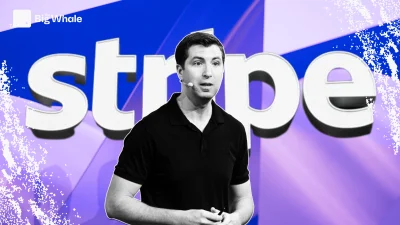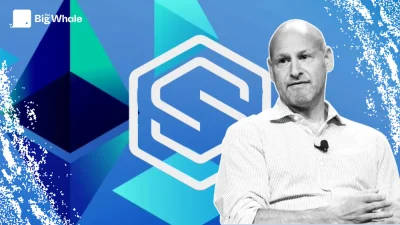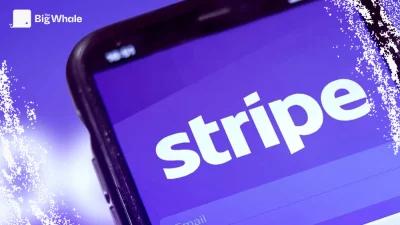You're launching Spotlight, a programme-event based around Web3 entrepreneurship. What exactly is it?
Spotlight is a ceremony and a YouTube programme, designed as a big show that highlights France's most talented entrepreneurs. The aim is to identify those who will join season 3 of Cube3. We're in the process of creating a highly visual stage, a physical cube with 25m² of screens, in which the candidates will be challenged through a number of tests.
So it's going to be a sort of competition? With a winner at the end?
Exactly. There's a real competition, like a "Squid Game" in inverted commas, even though it's obviously benevolent. The entrepreneurs are put to the test, not just their project. The project is audited upstream to validate its soundness, but on the stage, we challenge the entrepreneur on his decisions, his general culture and his reactions. Because we believe that a good entrepreneur can turn an average project into a success, whereas a bad entrepreneur can screw up a good idea.
How many tests are there?
There are five. After the third, only ten entrepreneurs remain in the race. These ten will have the opportunity to join Cube3. Then we select a grand prize winner, both for the show and for the pitch competition. The ceremony will be filmed on 14 May. The panel of judges will include Éric Larchevêque and Nicolas Louvet. We're co-producing the show with Amixem.
How many applications have you received so far?
Forty so far. We're hoping to pass the 50 mark, because we want to audition 50 of them to select 25 to enter the cube. Applications are open until 30 April.
Who can take part?
You must already have created your start-up. This is not an ideation programme, we're looking to accelerate the process. We're looking for founders who have already made progress with their project.
What's in it for the big winner?
There are several tens of thousands of euros in direct funding - public and private - and around 30,000 euros in prizes, including a stand at CryptoXR 2026 worth 10,000 euros, which incidentally confirms that CryptoXR will indeed be taking place in 2026. The exact amount of funding has not yet been officially communicated, but it's significant.
"We've supported 25 projects in two seasons" Who actually provides the funding?
Private investors who are used to working with Cube3, mainly business angels who trust our selection process. If they see that a project has won Spotlight, they think it's solid.
Your Cube3 incubator is entering its third year. How would you sum up the first two years?
We've supported 25 projects in two seasons. Our successes include Dowgo, Rufiji Capital, Boonty, Memori Connect... These are start-ups that reflect our vision of "everyday Web3". We're using Web3 as a technology to serve concrete use cases - renewable energy tokenisation, insurance redesign, cross-border payment in stablecoins, customer loyalty, etc.
>> Read also - Web3 incubators: which one to choose?
What are the main challenges you've had to face?
Regulation, without hesitation. It's a subject we know off by heart, but it's still a big obstacle. We see companies hesitating to set up in France because of the administrative delays, the cost of approvals, the regulatory uncertainties. We try to persuade them to stay in France to take advantage of certain public grants, such as those from the BPI, and other benefits, but it's complicated.
And what about financing?
It's also more difficult than it used to be. There's a wait-and-see attitude, and we don't really know what people are expecting. Some investors are putting the brakes on, while others are taking the opportunity to accelerate. But those who have a good, well-structured project and are ultra-motivated manage to come out on top.
>> Read also - Tokens and/or equity: Crypto projects' recipes for raising funds
How does Cube3 help start-ups raise finance in practical terms?
We've put a number of things in place. Notably "Plan Cube", a video format where we connect start-ups to our network of business angels. We've also recruited someone to do just that: structure pitches, decks and business plans, and send them to the right networks. In addition, we have advisors who help us with public funding, notably via the BPI or local authorities.
You're also active on YouTube. It's an effective showcase?
Yes, it helps a lot. Start-ups like VenaLabs have won customers after appearing in our videos. Build in public" is a powerful lever, especially when the products are already live.
"We always take a small equity stake (less than 5%) to maintain a long-term link" What types of support do you offer?
We try to cover everything 360°. We have technical partnerships with major blockchain projects such as iExec, Solana, Starknet and Tezos via Nomadic Labs, which offer grants to projects and part-finance their support. Legally, we work with ORWL. We also offer marketing, weekly workshops and one-on-one sessions with our mentors, including Owen Simonin, Faustine Fleuret and Ivan de Lastours. We structure, finance and exhibit. And yes, we always take a small share in the capital (less than 5%) to maintain a long-term link.
Are you breaking even today?
Yes. Thanks to success fees on fund-raising, partnerships, and contributions from partner blockchains. We're still frugal, but we're holding our own.
What do the most successful start-ups have in common?
The one thing they have in common is that they use Web3 to solve concrete problems. They are curious, present, good listeners and very well structured. Many have found their partners or mentors through Cube3.
What advice would you give Spotlight candidates?
Be concrete. Purely DeFi projects or even corner projects are fun, but they rarely survive. It has to meet a real need. And above all, be open, listen and be prepared to question yourself. Let them have fun, that's what entrepreneurship is all about!
What are the major trends you see in 2025?
There are a lot of projects around AI, AI agents and tokenisation. DeFi is still present, but much more cautious. Above all, there are very few projects that deal directly with the activities governed by MiCA - these have become too risky in terms of legal and operational costs for young companies. There is a real appetite for Real World Assets (RWAs), because they are legally simpler. But it's also a brake on innovation.
Heading 1 Heading 2 Heading 3 Heading 4 Heading 5 Heading 6 Lorem ipsum dolor sit amet, consectetur adipiscing elit, sed do eiusmod tempor incididunt ut labore et dolore magna aliqua. Ut enim ad minim veniam, quis nostrud exercitation ullamco laboris nisi ut aliquip ex ea commodo consequat. Duis aute irure dolor in reprehenderit in voluptate velit esse cillum dolore eu fugiat nulla pariatur.
Block quote Ordered list
Item 1 Item 2 Item 3 Unordered list
Text link
Bold text
Emphasis
Superscript
Subscript









